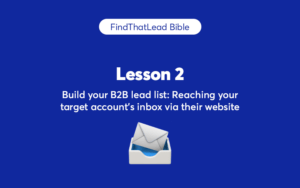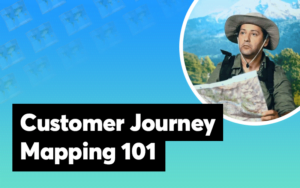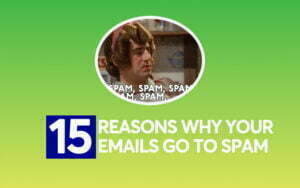We all know that the first play in the inbound marketing playbook is to create high quality, relevant content to draw your audience in. But what happens when you don’t know anything about the industry you’re writing for? Whether you’re responsible for content creation at an agency, or an in-house marketer in an industry about which you know only a little, this problem presents itself to most marketers at some point in their career.
What makes this more difficult today than ever before is that it’s no longer enough to write “surface” content. Meaning, publishing a piece of content powered by a cursory knowledge of a quick Google search isn’t going to yield the kind of in-depth, quality content readers and search engines now expect.
But don’t worry fellow marketer, we’ve got you covered. Whether you’ve just accepted a killer marketing position for a cardboard box company or landed a gig at a Ryan Gosling-themed clothing company (hey, it could happen, right?), following these steps will enable you to write quality content … no matter what subject matter’s thrown at you.
Learn the Lingo

Have you ever heard someone speak in a language you aren’t familiar with? They could be saying … anything, really. Even if you have the information they’re looking for, you probably can’t help them. Why? You don’t speak the language. Duh.
Before you can have a conversation through your content, then, you need to learn the industry lingo. Unfortunately, most industries don’t come with their own Rosetta Stone guides. So what can you do? Start by learning important industry definitions. If you’re starting from square one, look for resources written for others that aren’t industry insiders yet. That’s why, for instance, this very blog of our tags blog content by skill level. It allows audiences to consume content targeted to their stage in the educational process. Some places to start your search are Wikipedia, books from the For Dummies series, and industry forums targeted to your skill level – you might find groups of like-minded individuals on Quora or in LinkedIn Groups, for example.
Subscribe to Industry Publications

As your base level of understanding about your industry increases, you’ll be able to parse industry content much better. It’ll be kind of like reading through a French textbook when you know, like, 75% of the terminology. It’s not totally foreign, and you’re starting to understand the context, but you’re still gonna be reading pretty slowly, re-reading sentences, and looking up terms once in a while.
Start subscribing to (and reading – yes, you have to read them) blogs and newsletters. As you get more comfortable reading industry material, you should also advance to downloading longer form content like whitepapers and ebooks. Reading these types of content assets regularly, especially when you now know the lingo a bit better, will start to give some context that provides a deeper understanding of your subject matter. In fact, you may even find that you start having questions — ones that don’t stem from a misunderstanding of the subject matter, but instead from a desire to learn more about the subject matter. That’s a great sign that your knowledge gap is decreasing! (Tip: Write these questions down. They’ll make great content fodder, later on, you awesome inbound marketer, you.)
Identify and Follow Influencers on Social Media

I don’t care if the industry you’re trying to learn is paper clip manufacturing, there are some specialists out there tweeting about it. To give you an idea … my colleague’s father works in nuclear physics, and even he’s using LinkedIn.
My point is, the smart industry people are out there, and you can find ‘em. One place to start identifying these folks is using social ranking tools like Sprinklr. A research tool that helps marketers identify influencers in their industry. By identifying top influencers for your industry, you can get access to the content they think is worth reading. Even if some of it is over your head right now, bookmark it. It’ll be useful later in your learning process (more on that later).
Attend Live Industry Events

Live industry events include trade shows, meetup groups, and even webinars. The benefit of attending these events at this stage in your learning is twofold:
- You know the lingo and have enough context to be able to hold an intelligent and meaningful conversation. This will help you increase your knowledge with the kinds of details only other subject matter experts can help fill in for you.
- You can ask all those questions you’ve been writing down as you learn more about the industry!
Take a Class

Some people start with this step. If that’s your jam, well, by all means, go that route. I personally think taking a class is more relevant once you’ve done a little self-learning. Again, at this stage of the game, you’re more prepared to ask intelligent questions of subject matter experts — you know, your teachers — that will seriously advance your industry knowledge. After all, you can memorize definitions and subscribe to blogs on your own.
Coursework is excellent for marketers that will need to create very advanced content. Check out online learning communities, like Skillshare, which offers multiple in-person and online classes that can be taught by anyone, including people in your industry! Even top-tier colleges often offer adult education courses, if online learning isn’t suited to your learning style. (Tip: Ask your employer if they offer any tuition reimbursement. Some employers will offer to foot the bill or part of it, for employees advancing a skill set that’s directly related to their job.)
Form Your Own Little Industry Community

Now that you’re more immersed in your industry — attending events, chatting on forums, maybe even taking classes — form your own little circle of trust with others that you find knowledgeable, and that you respect. This will come in handy for taking yourself from an introductory or intermediate knowledge level to a higher level of understanding. You’ll be able to bounce ideas off of each other as you all learn more, educate one another on new ideas, and introduce new content and people to the group. In other words, you’ll just keep getting smarter. The whole lot of ya!
Start Forming Opinions

To create great content, you need to have a point of view. Remember at the beginning of this post when we talked about identifying industry thought leaders? Now’s the time you’ll be really glad you found them and started bookmarking their content. Get an understanding of their opinions on the trajectory of your industry. Weigh the different sides, and start to form your own opinions.
It’s really important, however, that you don’t form these opinions in a vacuum. Remember how we were just talking about forming your own little community? Yeah, this is where they come in handy. Solid, well thought-out opinions are formed through discussion, scrutiny, and the introduction of dissenting or supplementary ideas. This is much easier to find when you have a group of knowledgeable peers to talk to.
You may also find these folks within the four walls of your office — at HubSpot, we often get a little time with a subject matter expert with a tiny bribe, actually. I’m not saying you hand ‘em a crisp $20 or anything, just learn their favorite baked good or something 😉
Align Objective Knowledge With Your Company’s Positioning

Now that you speak the industry language, understand its ins and outs, and even have some opinions of your own, it’s time to learn your company’s accent. How is your company or client different from others in the space? What words do they emphasize in their value proposition? The content you write needs to not only sound like your company or client’s voice but also highlight the strengths that make them different from anyone else in the space. Here’s how to get caught up to speed:
- Research any current lead- or customer-facing content, and see if you can succinctly describe the tone. If it’s not clear, there’s good news and bad news. Good news: You don’t have to adapt to a pre-established tone. Bad news: You have to define your company’s tone.
- Identify your company’s buyer persona. This will help you define the tone your content should carry — after all, you want your target audience to enjoy reading your content, right? (If you need help creating a buyer persona, check out this blog).
- Bury yourself in your company’s mission statement, value proposition, and any other branding materials they have. You should be able to define your company’s value proposition and mission statement easily, so you can ensure all content you create aligns with it.
Create Your Editorial Calendar

Now that you’re educated and you’ve got an idea of what your audience wants your content to sound like, it’s time to figure out what the heck to write. I recommend creating an editorial calendar so you have a backlog of topics in case you hit writer’s block, but also so you can have that trusted circle of subject matter experts review it for relevancy. At this point, it’s also wise to open up your circle to leads and customers — you know, the people for whom you’re creating content — and any employees on the front-lines of your company. These folks are “in the thick of it,” and know the pain points that lead generation content should ideally be addressing.
You can also check out FAQs on other industry websites, use tools like Google’s Keyword Planner or SEM Rush to help you find out exactly what people are asking, and start searching which long-tail keyword phrases start with interrogatives to see the exact questions people are looking for answers to.
Test-Drive Your Content

So you have these awesome content ideas, and you’re drawing on all your industry knowledge to create this great blog post. You’ve done it! The blog post’s over.
Wait! Don’t hit the “Publish” button quite yet. For the first few pieces of content, it’s a good idea to have a subject matter expert review what you’re publishing. This will help you identify the topics that you’ve got down pat, and the ones you still need more brushing up on.
We do this at HubSpot all the time, actually. When an author that typically writes about email marketing is writing an ebook about SEO — something they know about, but know they have some knowledge gaps in — our internal SEO experts give it a thorough review before it ships. It’s important for your credibility, and ups your game by leaps and bounds when you read the feedback from the subject matter expert. As you create more content in those areas, you learn a ton from that feedback.
Before you know it, you’ll find you’re the one training a new content hire about all of the little nuances that at one point, read to you like a foreign language. Good luck with learning about your new field!
Do you have any tips for becoming an authority in an unfamiliar industry?
Read: Sink or Swim: 7 Lessons Reps Need to Learn to Survive in Inbound Sales
———————–
About the author
Lindsey Kirchoff
LinkedIn:https://www.linkedin.com/in/lindseykirchoff/
Lindsey was a former Media and Speaker Relations Manager, Content Marketer at HubSpot. Now is she currently working as a Freelance Editor for Scribbr while traveling the world with her husband.







 BONUS:
BONUS: The Challenge: Join this free course and I guarantee that after 5 days you will have the necessary skills to start generating B2B clients Growth Hacking and Prospecting techniques.
The Challenge: Join this free course and I guarantee that after 5 days you will have the necessary skills to start generating B2B clients Growth Hacking and Prospecting techniques.